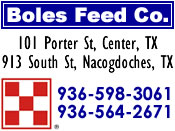September 20, 2016 - For some time now, I have been searching for a way to describe the writing/ publishing techniques that characterize UniqPublishing (the publisher of the online magazine, “We the People of Shelby County.”) Such characterization has alluded me until now, as I finish the first progression (first draft) of a short history of early Shelby County for our 150th anniversary of the founding of Center. Actually, there is no such thing as a “first draft” in the world of UniqPublishing, but that will be explained later.
It was in the first half of the 1970’s that an evolving system for writing and also the delivery of the written product began to influence my writing style/structure and, eventually, my publishing process. That system, of course, influenced all writers in one way or another, writers who previously had labored at the typewriter and early computers, when they went through endless drafts of their written work, mostly finding their fate in the trash can. While gradually realizing that software like WordPerfect could speed up the process, it was not so much that copy could be generated faster but that “Draft One” melded rather seamlessly into “Draft Two” and so on.
Now, whether as writer or as Publisher, there are no drafts 1, 2 and 3. There is an endless progression of versions, possibly all good and publishable but shaped in a continuing extension of the first thought that earlier had been captured in words. Some would call this dynamic; in this case, the meaning is not “forceful” but “continuously changing.”
I believe that it must have been preachers, shaping their sermons, who first took this “progressively dynamic” approach. It was natural for them to choose a verse or two of scripture, analyze and explain its meaning. Then they worked on it again the next hour or the next day to discover different meanings, all equally good but expanding related thoughts as if the first discovery were only the original germ of broader ideas. After all, isn’t that the nature of the Bible? One can read a specific passage of scripture many times and always discover something new. But it does not negate the truth of the passage’s first impression.
This article, by the way, is in itself, another example of progressive writing/publishing. Yes, it is being published, but stay tuned; it will progress to another article, expanding ideas that have been presented here and possibly linking to topics only mildly suggested by what you are reading now.
Progressive (developing gradually in stages) and dynamic (continuous change or progress)—these two words are almost interchangeable and yet, when used together, they have synergy (the creation of a whole that is greater than the sum of its parts). That is what is meant by being “progressively dynamic.”









